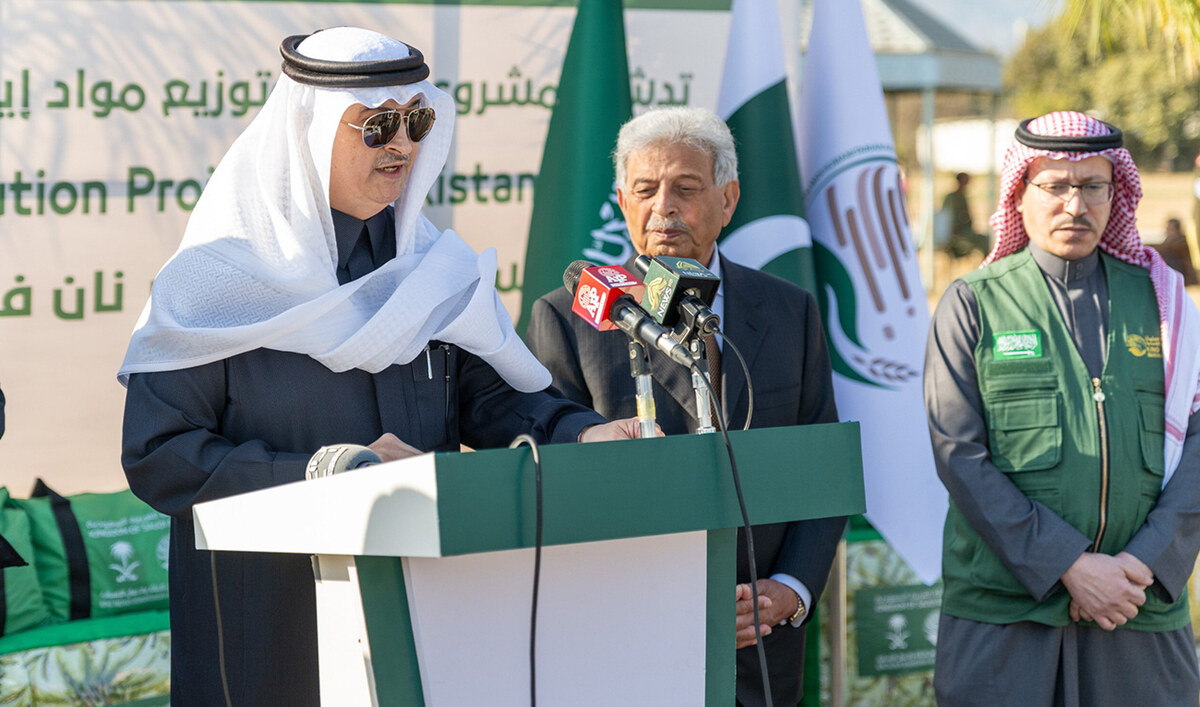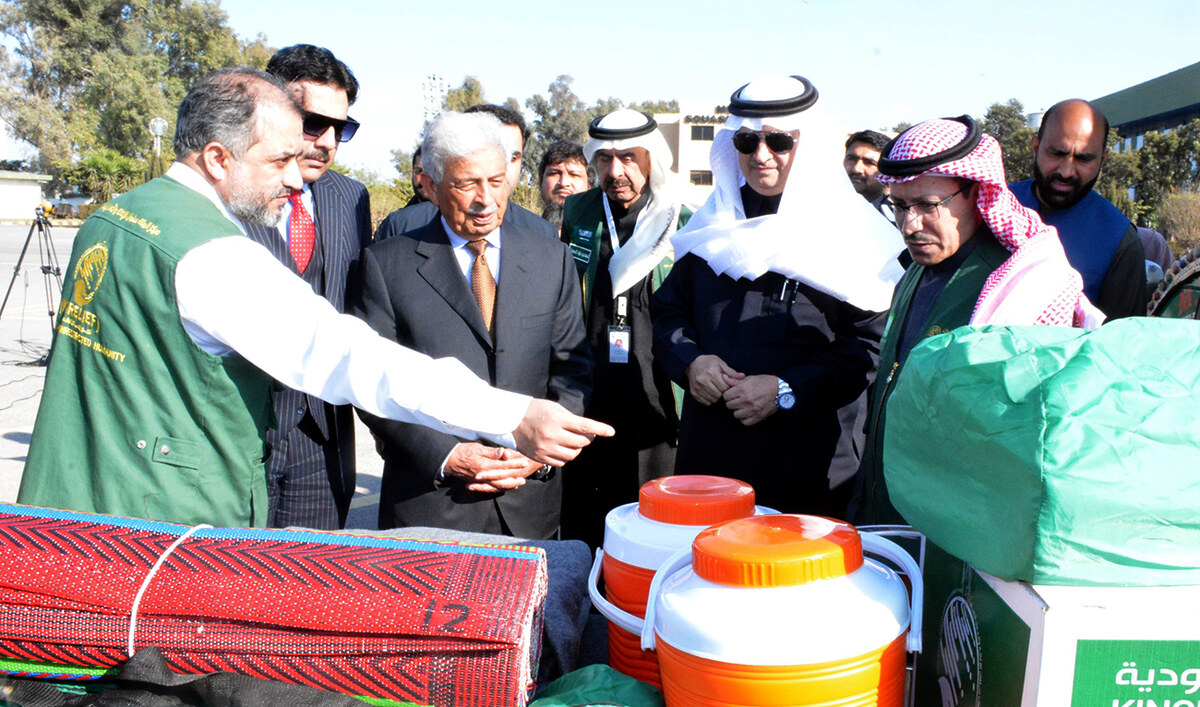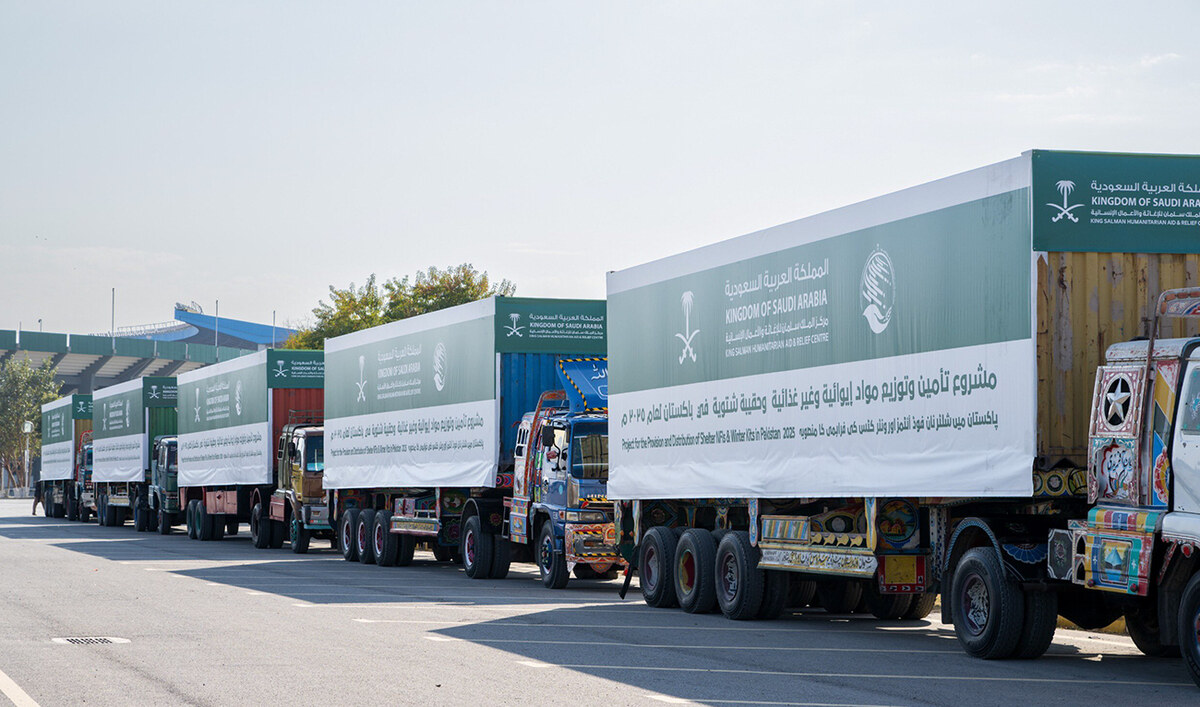WASHINGTON: As India’s defense chief attended an international security conference in Singapore in May, soon after India and Pakistan fought what many in South Asia now dub “the four-day war”, he had a simple message: Both sides expect to do it all again.
It was a stark and perhaps counterintuitive conclusion: the four-day military exchange, primarily through missiles and drones, appears to have been among the most serious in history between nuclear-armed nations.
Indeed, reports from both sides suggest it took a direct intervention from US Secretary of State Marco Rubio to halt an escalating exchange of drones and rockets.
Speaking to a Reuters colleague in Singapore, however, Indian Chief of Defense Staff General Anil Chauhan denied either nation had come close to the “nuclear threshold”, describing a “lot of messaging” from both sides.
“A new space for conventional operations has been created and I think that is the new norm,” he said, vowing that New Delhi would continue to respond militarily to any militant attacks on India suspected to have originated from Pakistan.
How stable that “space” might be and how great the risk of escalation for now remains unclear. However, there have been several dramatic examples of escalation in several already volatile global stand-offs over the past two months.
As well as the “four-day” war between India and Pakistan last month, recent weeks have witnessed what is now referred to in Israel and Iran as their “12-day war”. It ended this week with a US-brokered ceasefire after Washington joined the fray with massive air strikes on Tehran’s underground nuclear sites.
Despite years of confrontation, Israel and Iran had not struck each other’s territory directly until last year, while successive US administrations have held back from similar steps.
As events in Ukraine have shown, conflict between major nations can become normalized at speed – whether that means “just” an exchange of drones and missiles, or a more existential battle.
More concerning still, such conflicts appear to have become more serious throughout the current decade, with plenty of room for further escalation.
This month, that included an audacious set of Ukrainian-organized drone strikes on long-range bomber bases deep inside Russian territory, destroying multiple aircraft which, as well as striking Ukraine, have also been responsible for carrying the Kremlin’s nuclear deterrent.
All of that is a far cry from the original Cold War, in which it was often assumed that any serious military clash – particularly involving nuclear forces or the nations that possessed them – might rapidly escalate beyond the point of no return. But it does bring with it new risks of escalation.
Simmering in the background, meanwhile, is the largest and most dangerous confrontation of them all — that between the US and China, with US officials saying Beijing has instructed its military to be prepared to move against Taiwan from 2027, potentially sparking a hugely wider conflict.
As US President Donald Trump headed to Europe this week for the annual NATO summit, just after bombing Iran, it was clear his administration hopes such a potent show of force might be enough to deter Beijing in particular from pushing its luck.
“American deterrence is back,” US Defense Secretary Pete Hegseth told a Pentagon press briefing the morning after the air strikes took place.
Iran’s initial response of drones and missiles fired at a US air base in Qatar – with forewarning to the US that the fusillade was coming – appeared deliberately moderate to avoid further escalation.
Addressing senators at their confirmation hearing on Tuesday, America’s next top commanders in Europe and the Middle East were unanimous in their comments that the US strikes against Iran would strengthen Washington’s hand when it came to handling Moscow and Beijing.
Chinese media commentary was more mixed. Han Peng, head of state-run China Media Group’s North American operations, said the US had shown weakness to the world by not wanting to get dragged into the Iran conflict due to its “strategic contraction”.
Other social media posts talked of how vulnerable Iran looked, with nationalist commentator Hu Xijn warning: “If one day we have to get involved in a war, we must be the best at it.”
LONG ARM OF AMERICA
On that front, the spectacle of multiple US B-2 bombers battering Iran’s deepest-buried nuclear bunkers — having flown all the way from the US mainland apparently undetected — will not have gone unnoticed in Moscow or Beijing.
Nor will Trump’s not so subtle implications that unless Iran backed down, similar weapons might be used to kill its Supreme Leader Ayatollah Ali Khamenei or other senior figures, wherever they might hide.
None of America’s adversaries have the ability to strike without warning in that way against hardened, deepened targets, and the B-2 – now being replaced by the more advanced B-21 – has no foreign equal.
Both are designed to penetrate highly sophisticated air defenses, although how well they would perform against cutting-edge Russian or Chinese systems would only be revealed in an actual conflict.
China’s effort at building something similar, the H-2, has been trailed in Chinese media for years – and US officials say Beijing is striving hard to make it work.
Both China and Russia have fifth-generation fighters with some stealth abilities, but none have the range or carrying capacity to target the deepest Western leadership or weapon bunkers with conventional munitions.
As a result, any Chinese or Russian long-range strikes – whether conventional or nuclear – would have to be launched with missiles that could be detected in advance.
Even without launching such weapons, however, nuclear powers have their own tools to deliver threats.
An analysis of the India-Pakistan “four-day war” in May done by the Stimson Center suggested that as Indian strikes became more serious on the third day of the war, Pakistan might have taken similar, deliberately visible steps to ready its nuclear arsenal to grab US attention and help conclude the conflict.
Indian newspapers have reported that a desperate Pakistan did indeed put pressure on the US to encourage India to stop, as damage to its forces was becoming increasingly serious, and threatening the government.
Pakistan denies that – but one of its most senior officers was keen to stress that any repeat of India’s strikes would bring atomic risk.
“Nothing happened this time,” said the chairman of the Pakistani joint chiefs, General Sahir Shamshad Mirza, also speaking to Reuters at the Shangri-La dialogue in Singapore. “But you can’t rule out any strategic miscalculation at any time.”
For now, both sides have pulled back troops from the border – while India appears determined to use longer term strategies to undermine its neighbor, including withdrawing from a treaty controlling the water supplies of the Indus River, which Indian Prime Minister Modi said he now intends to dam. Pakistani officials have warned that could be another act of war.
DRONES AND DETERRENCE
Making sure Iran never obtains the leverage of a working atomic bomb, of course, was a key point of the US and Israeli air strikes. Trump and Israeli Prime Minister Benjamin Netanyahu agreed that the dangers of a government so hostile to Israel obtaining such a weapon would always be intolerable.
For years, government and private sector analysts had predicted Iran might respond to an assault on its nuclear facilities with attacks by its proxies across the Middle East, including on Israel from Hezbollah in Lebanon and Hamas in Gaza, as well as using thousands of missiles, drones and attack craft to block international oil exports through the Strait of Hormuz.
In reality, the threat of an overwhelming US military response – and hints of an accompanying switch of US policy to outright regime change or decapitation in Iran, coupled with the Israeli military success against Hezbollah and Hamas, appear to have forced Tehran to largely stand down.
What that means in longer term is another question.
Flying to the Netherlands on Tuesday for the NATO summit, Trump appeared to be offering Iran under its current Shiite Muslim clerical rulers a future as a “major trading nation” providing they abandoned their atomic program.
The Trump administration is also talking up the success of its Operation ROUGH RIDER against the Iran-backed Houthi militia in Yemen.
Vice Admiral Bradley Cooper, selected as the new head of US Central Command, told senators the US military had bombed the Houthis for 50 days before a deal was struck in which the Houthis agreed to stop attacking US and other international shipping in the Red Sea.
But Cooper also noted that like other militant groups in the Middle East, the Houthis were becoming increasingly successful in building underground bases out of the reach of smaller US weapons, as well as using unmanned systems to sometimes overwhelm their enemies.
“The nature and character of warfare is changing before our very eyes,” he said.
Behind the scenes and sometimes in public, US and allied officials say they are still assessing the implications of the success of Ukraine and Israel in infiltrating large numbers of short-range drones into Russia and Iran respectively for two spectacular attacks in recent weeks.
According to Ukrainian officials, the drones were smuggled into Russia hidden inside prefabricated buildings on the back of trucks, with the Russian drivers unaware of what they were carrying until the drones were launched.
Israel’s use of drones on the first day of its campaign against Iran is even more unsettling for Western nations wondering what such an attack might look like.
Its drones were smuggled into Iran and in some cases assembled in secret there to strike multiple senior Iranian leaders and officials in their homes as they slept in the small hours of the morning on the first day of the campaign.
As they meet in The Hague this week for their annual summit, NATO officials and commanders will have considered what they must do to build their own defenses to ensure they do not prove vulnerable to a similar attack.
Judging by reports in the Chinese press, military officials there are now working on the same.




















